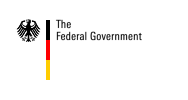The G8 is a valuable body in this context. In spite of popular misconceptions, globalisation has not turned politicians into paper tigers.
While the world economy has changed radically since the first G6 meeting in Rambouillet in 1975, fundamental problems persist.
At the first summit, the G6 states came together to discuss a response to the 1974 oil shock. The items on the agenda thus included ways of enhancing energy efficiency and reducing dependence on imported raw materials.
Greater transparency on the capital markets
A stable currency is the foundation of every national economy. Export-oriented countries like Germany are closely integrated into the international financial system, with the result that currency fluctuations impact directly on their economic situation, their international competitiveness and thus also on their labour markets. In Germany alone, eight million jobs depend on exports.
At previous G8 summits, the fight against inflation and efforts to achieve stable exchange rates were important topics. The German G8 Presidency is endeavouring to make capital markets more transparent.
Open markets need clear regulations. This applies, for instance, to hedge funds. At their recent meeting near Potsdam, the G8 ministers of finance recommended common standards.
Involving emerging economies
The "outreach countries", Brazil, China, India, Mexico and South Africa, now play an extremely important part in the global economy, as emerging economies. They are being integrated into global responsibility, and have been invited to meet the G8 states at the Summit in Heiligendamm.
The protection of intellectual property and the fight against product piracy are major concerns of the German G8 Presidency in this context.
Counterfeits cost the German economy alone 25 billion euros every year. Worldwide, the cost is put at 120 billion euros. Pirate products are often made of inferior materials, and do not comply with the quality or safety standards of the originals.
The fight against product piracy thus also protects consumers, making it essential to look at both the manufacture of and the demand for pirate products. Without the cooperation of emerging economies, progress here would be inconceivable.
Liberalising trade
Now worldwide trade should be liberalised and protectionism further overcome. This calls for efforts on all sides. If fair regulations are agreed and respected, globalisation will bring prosperity for all.
Open markets foster mutual trade and thus growth. It is then crucial that a breakthrough be achieved in the Doha Round of world trade negotiations.
